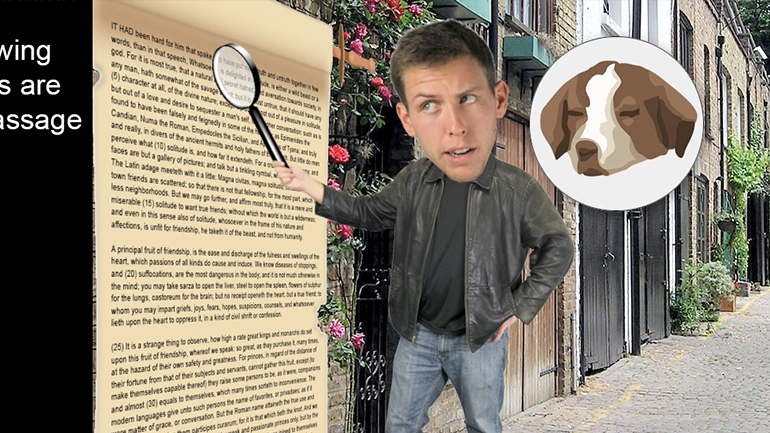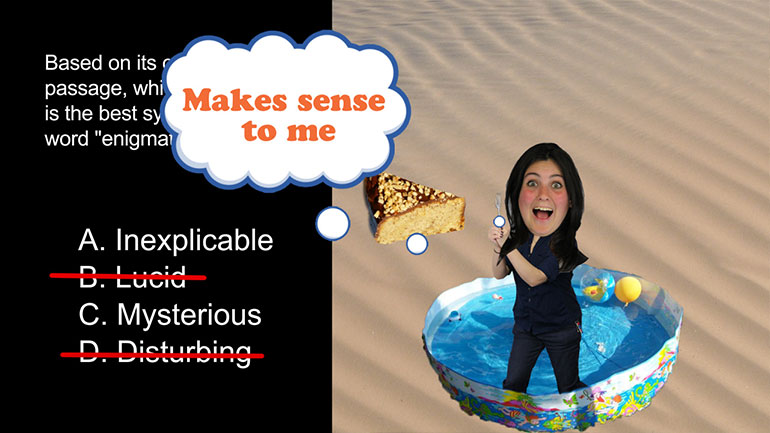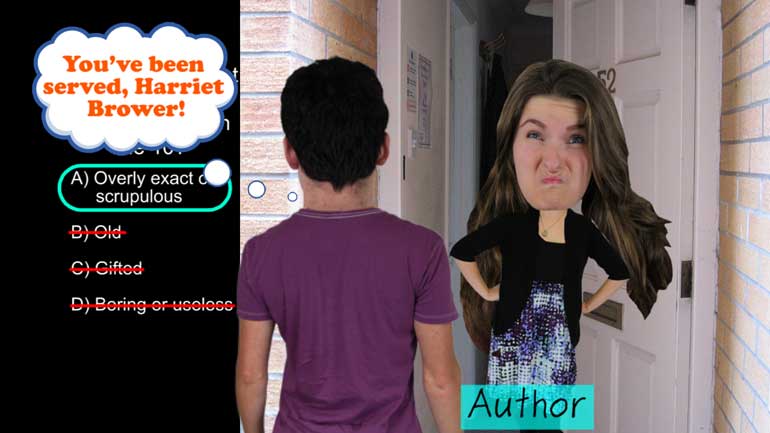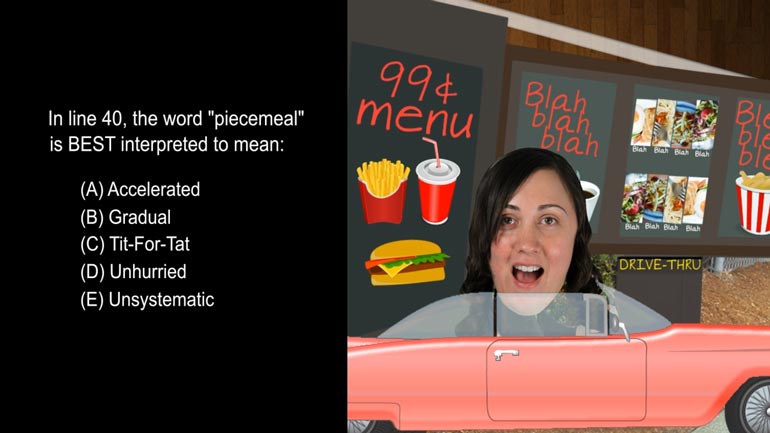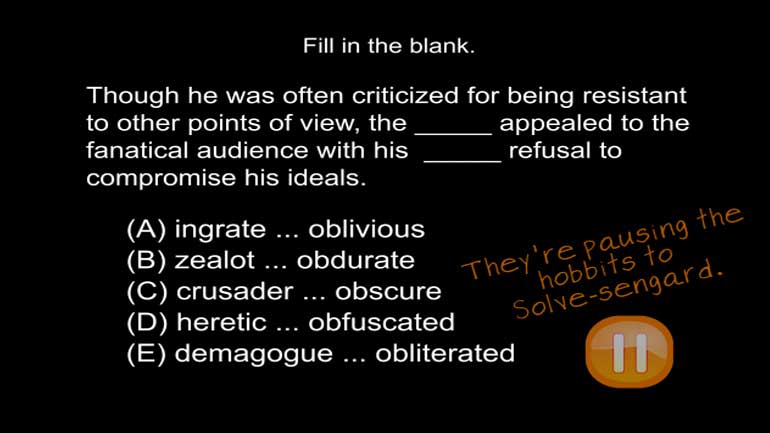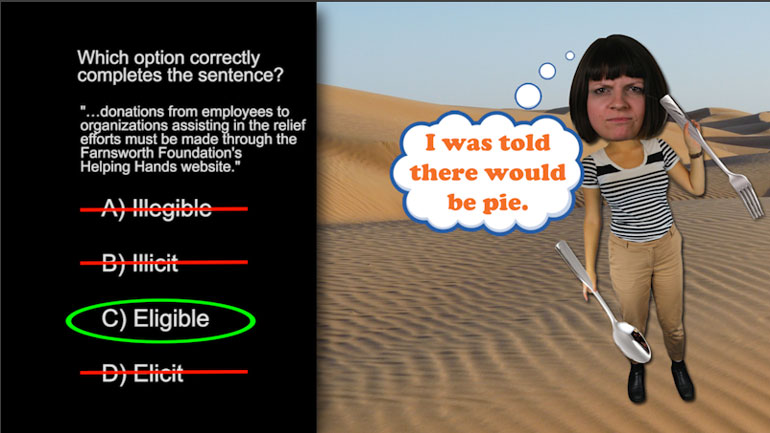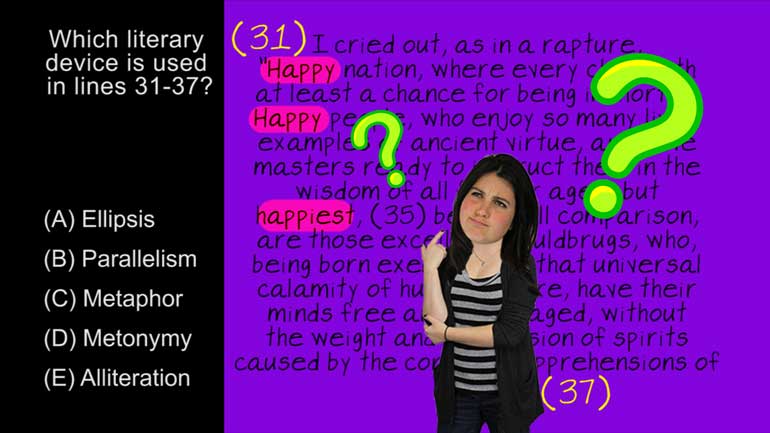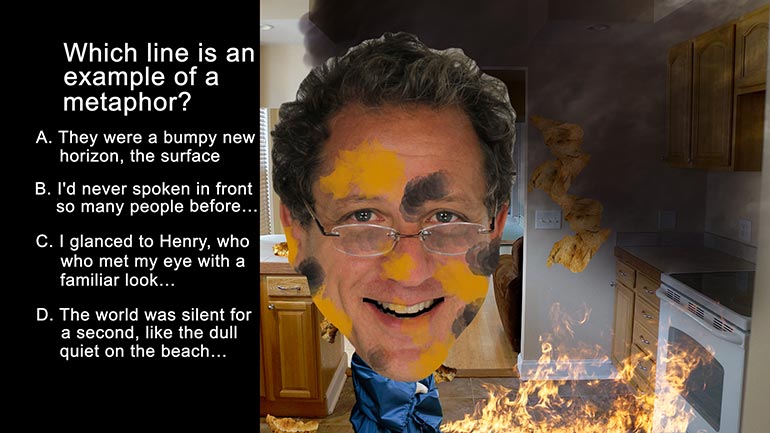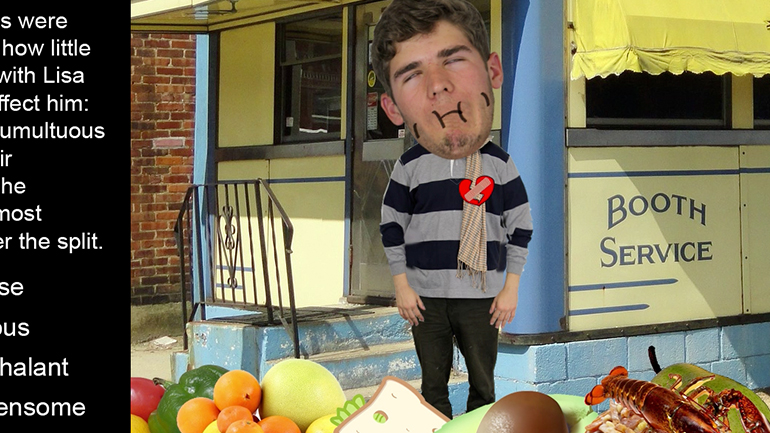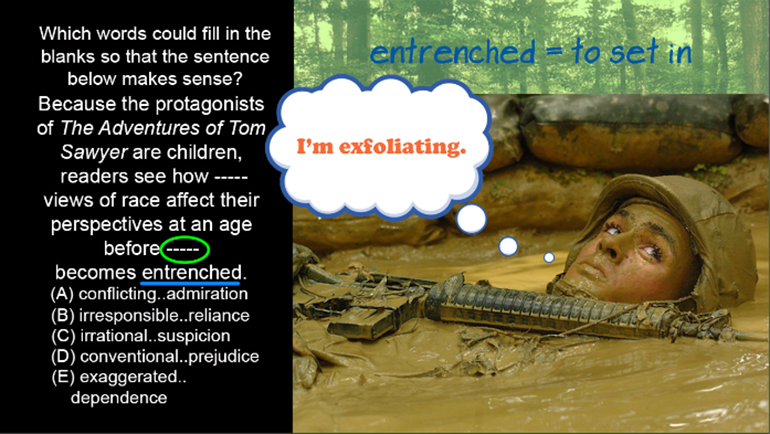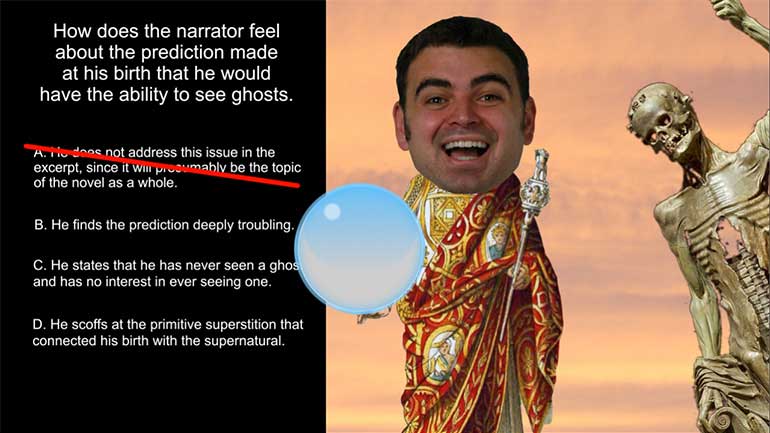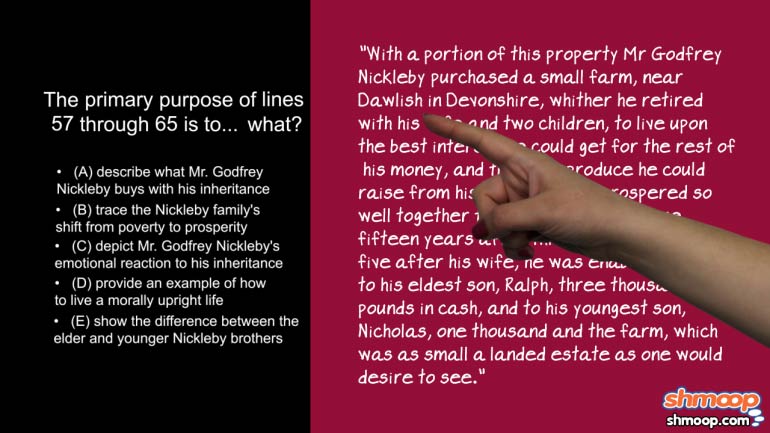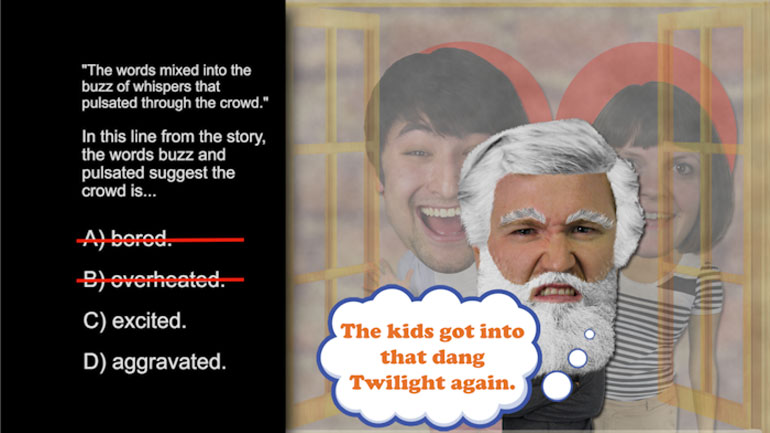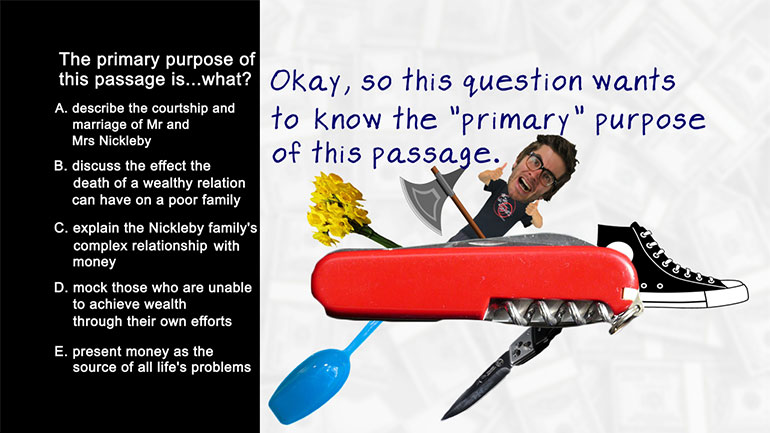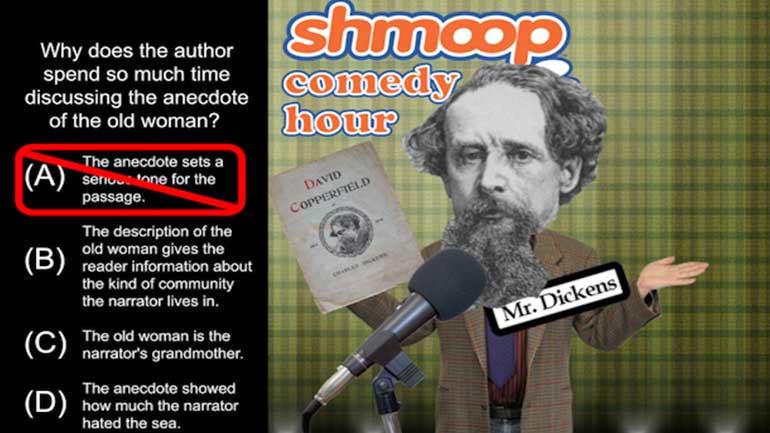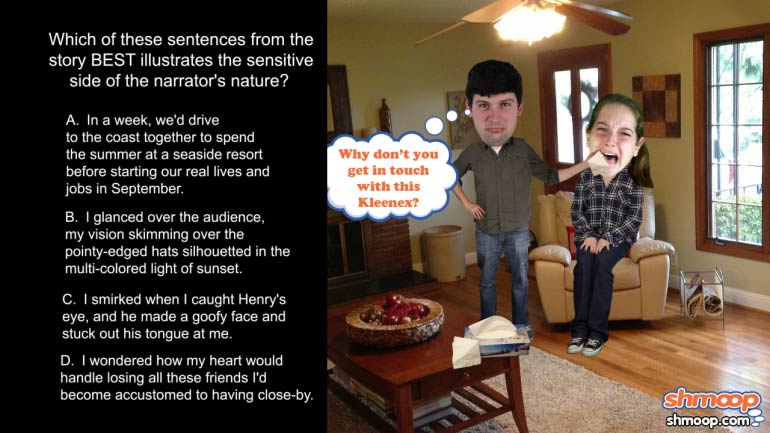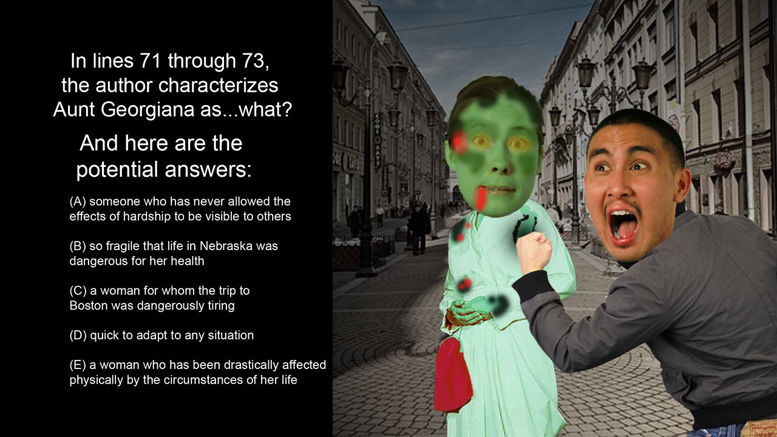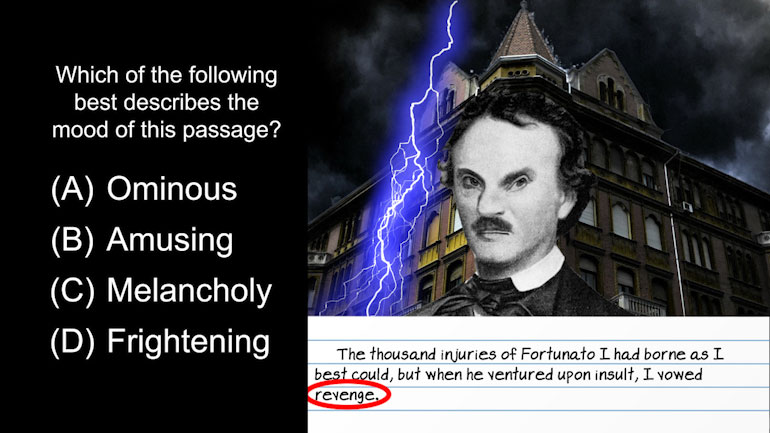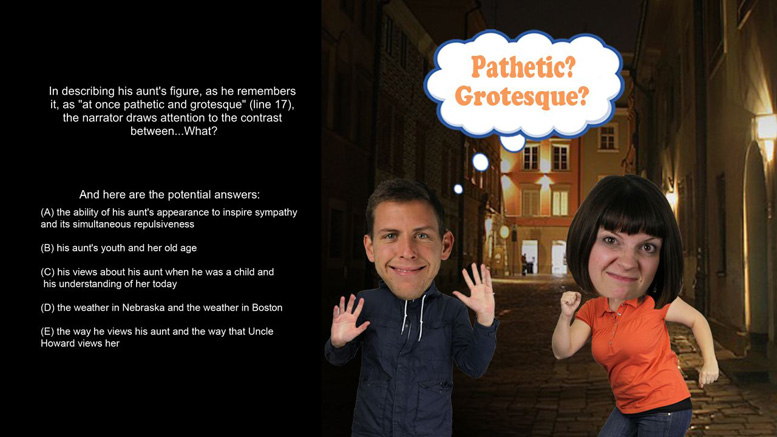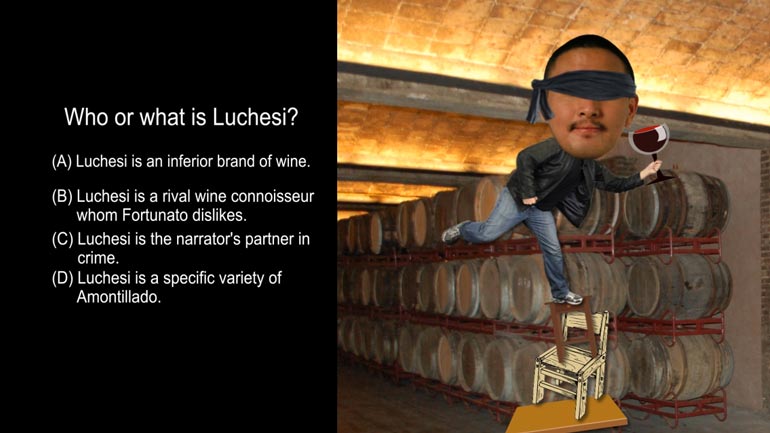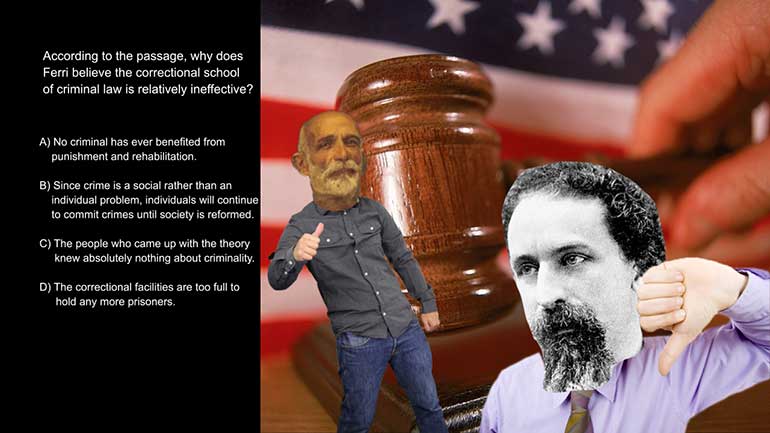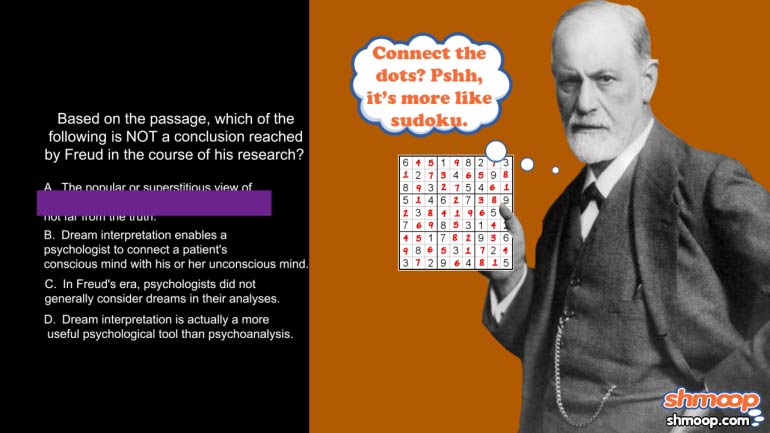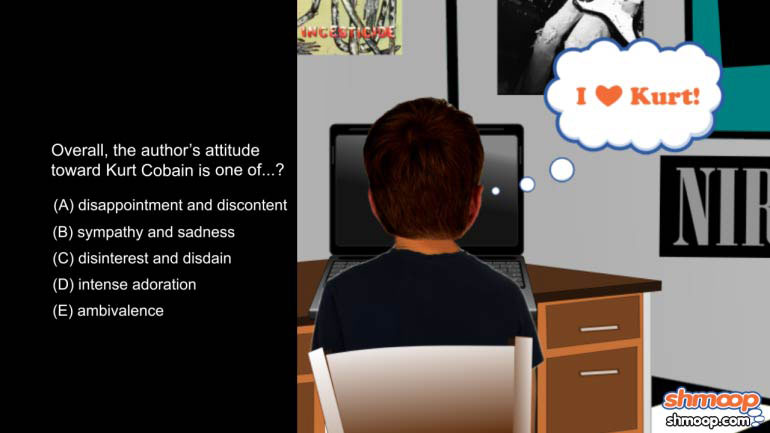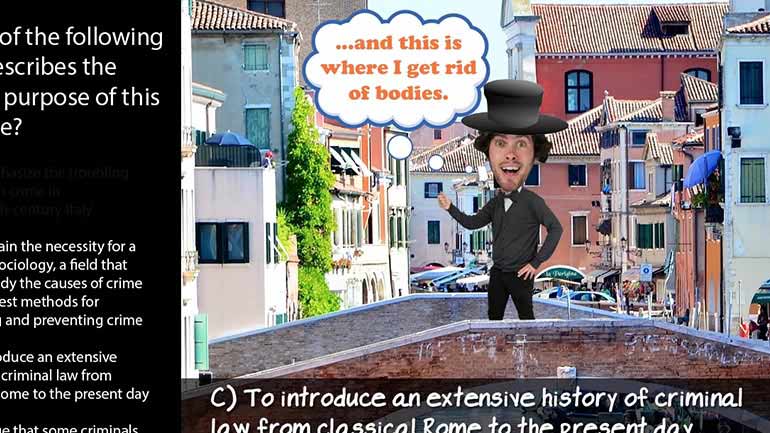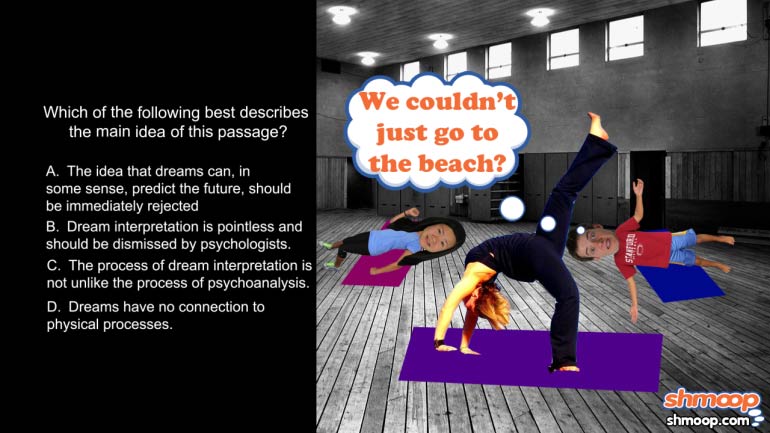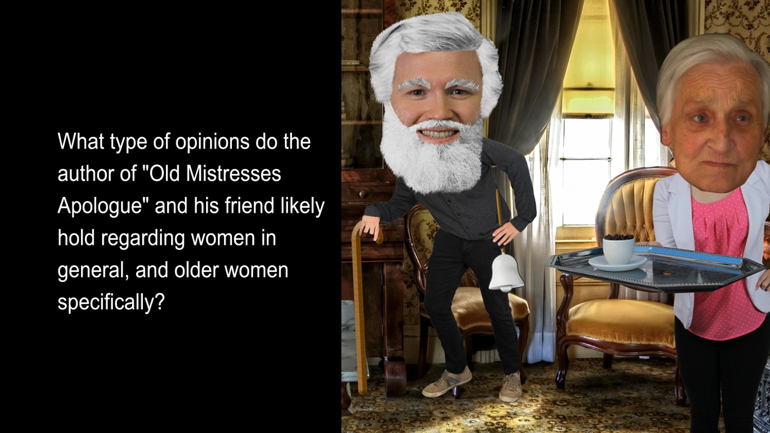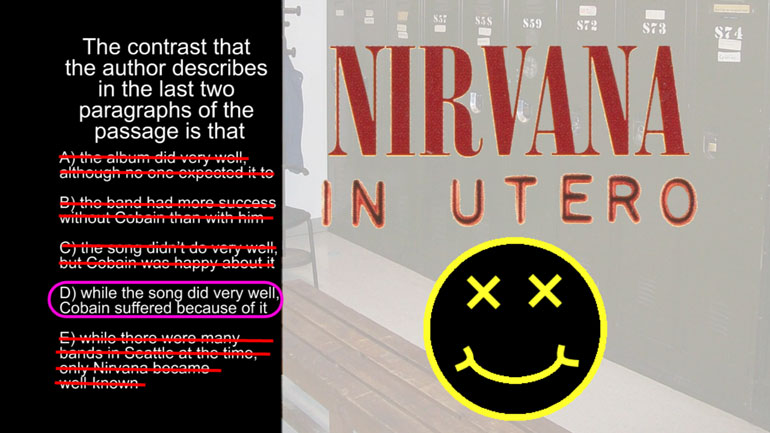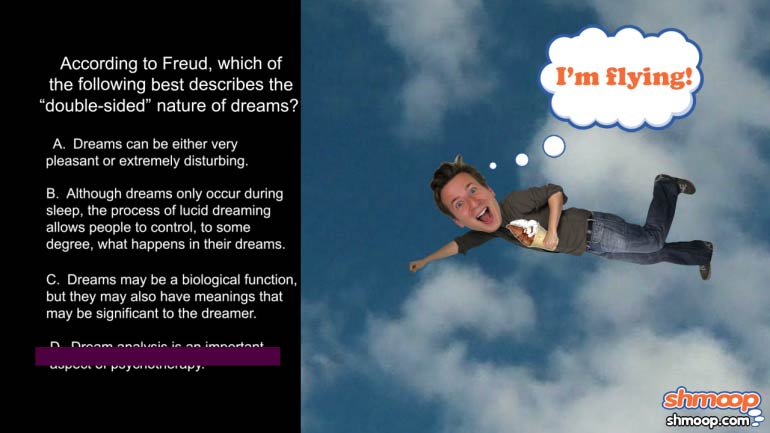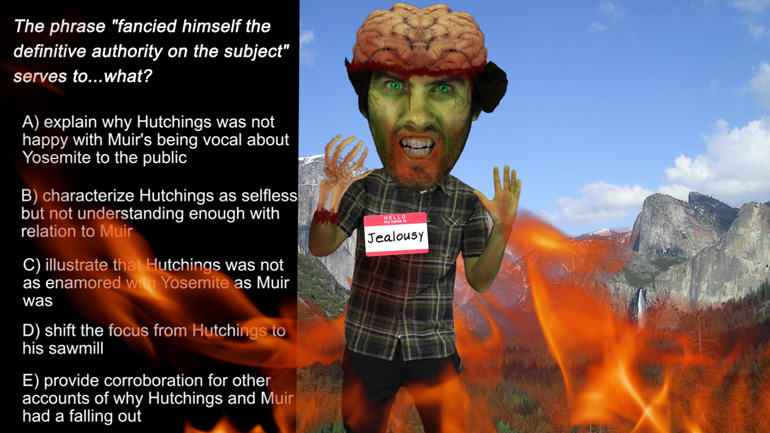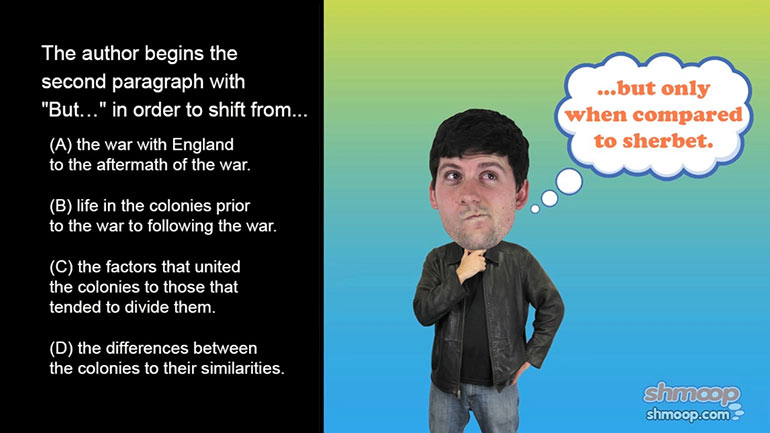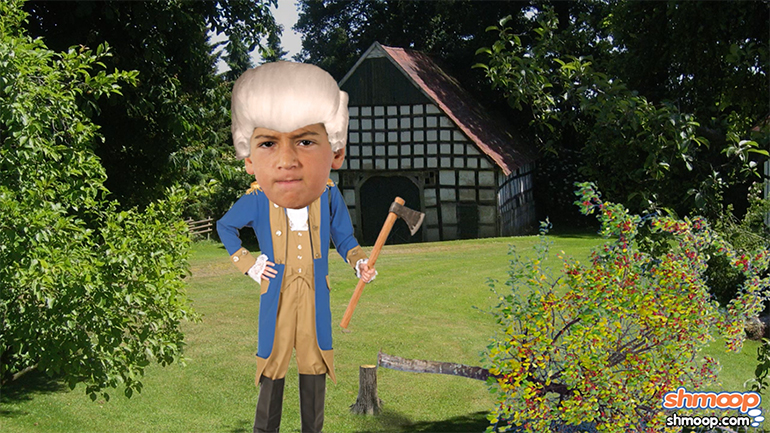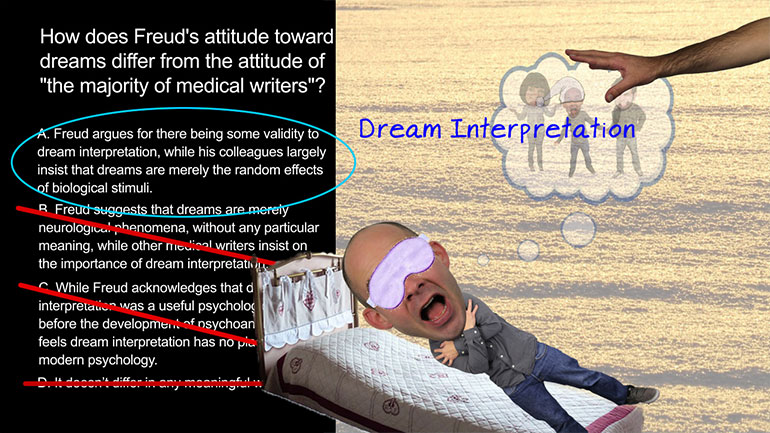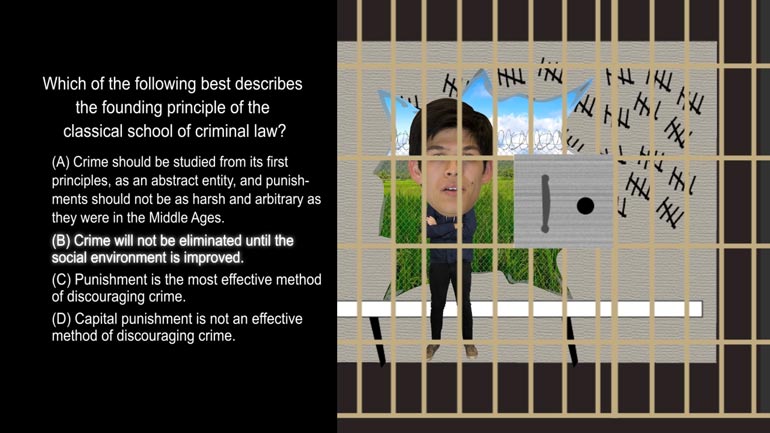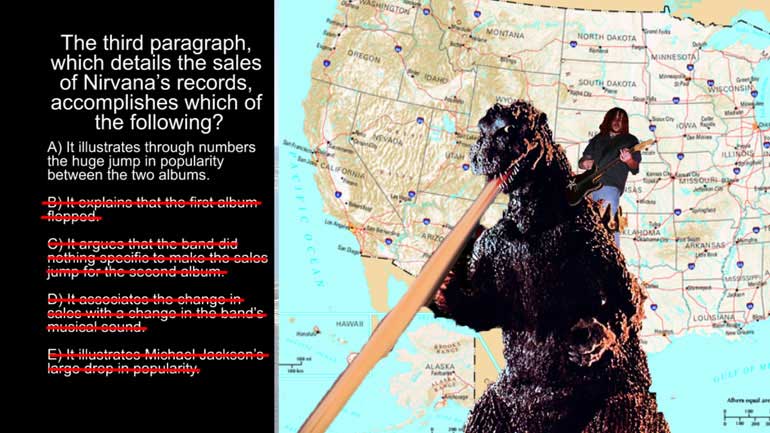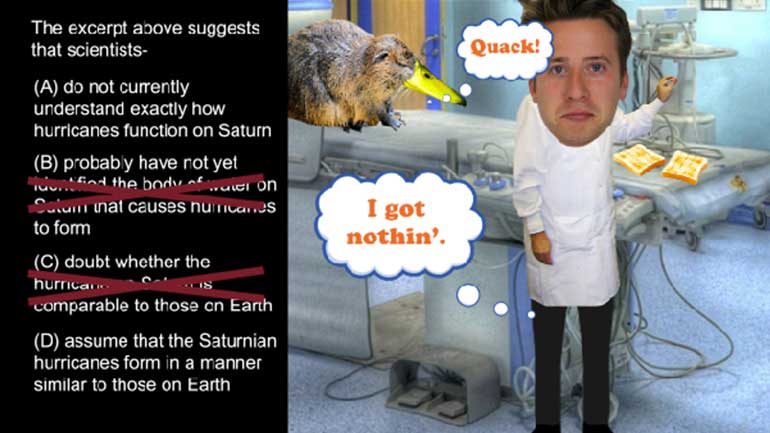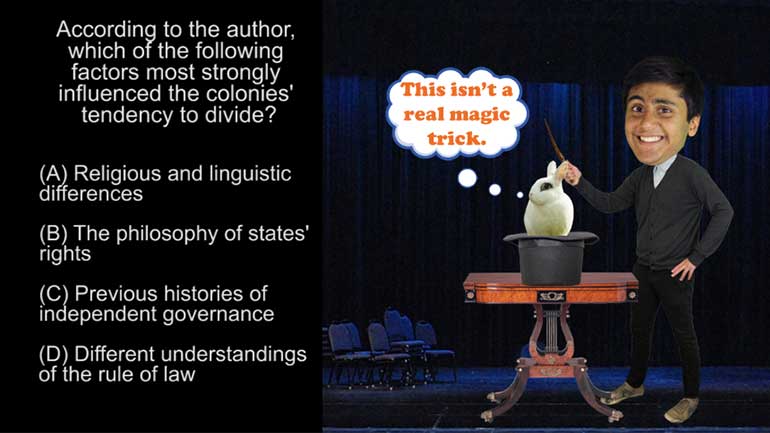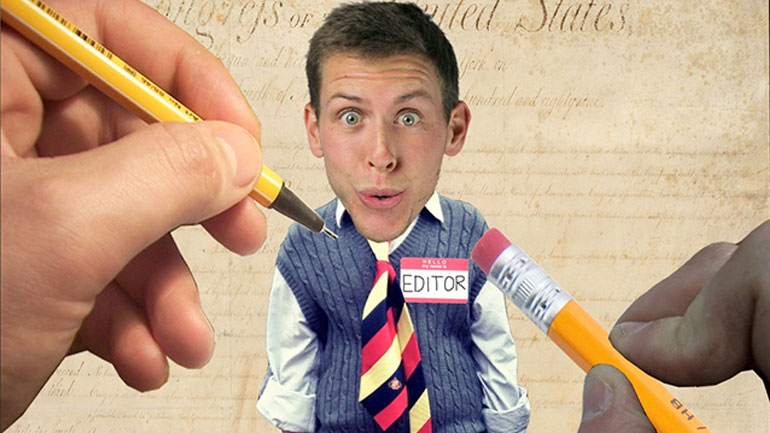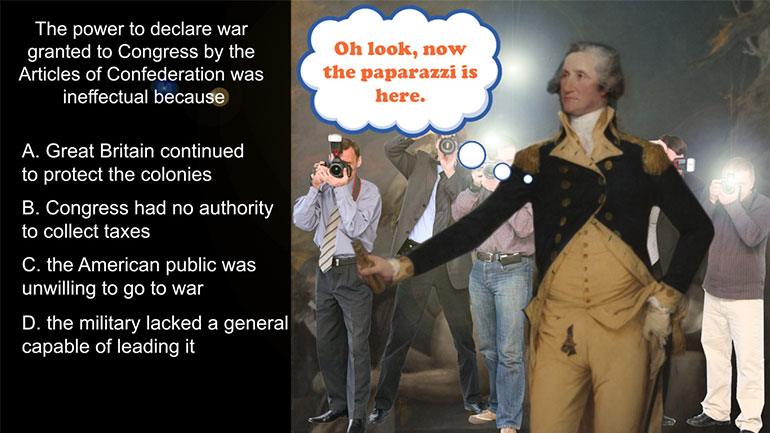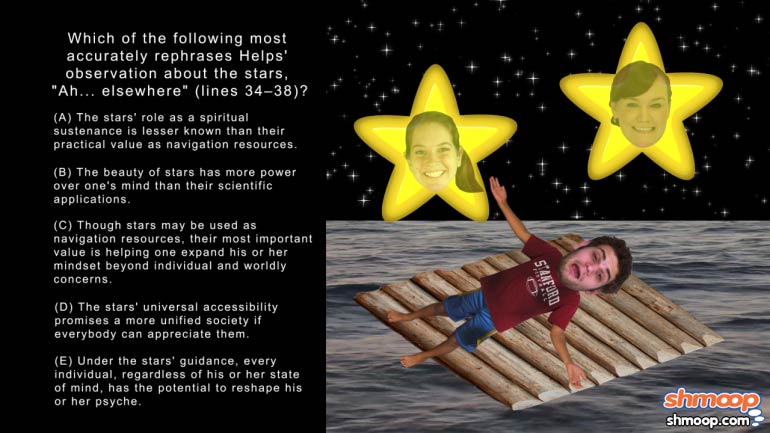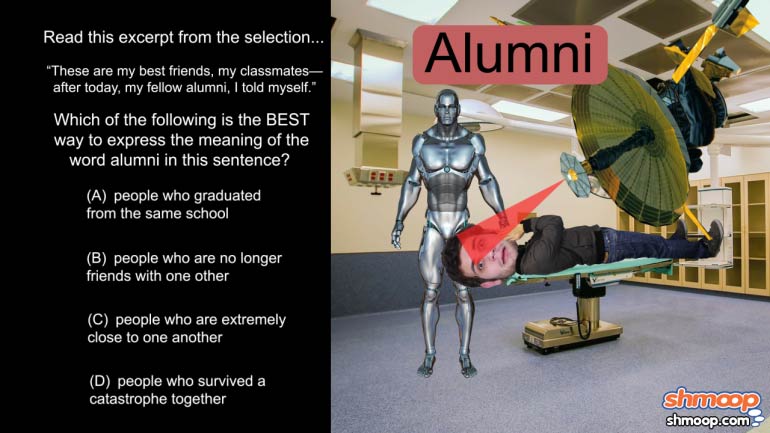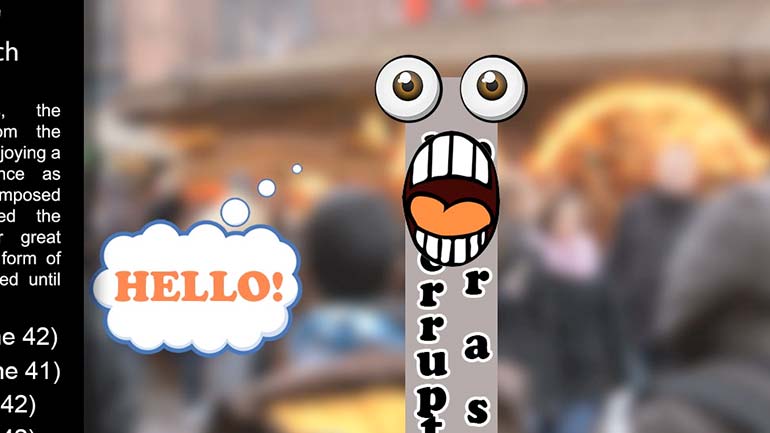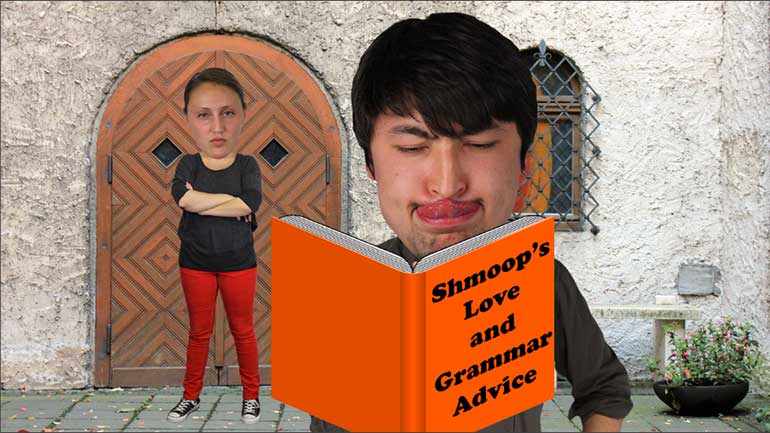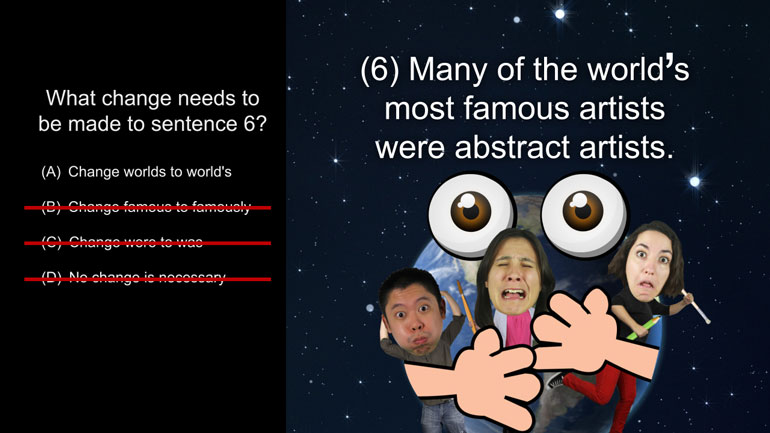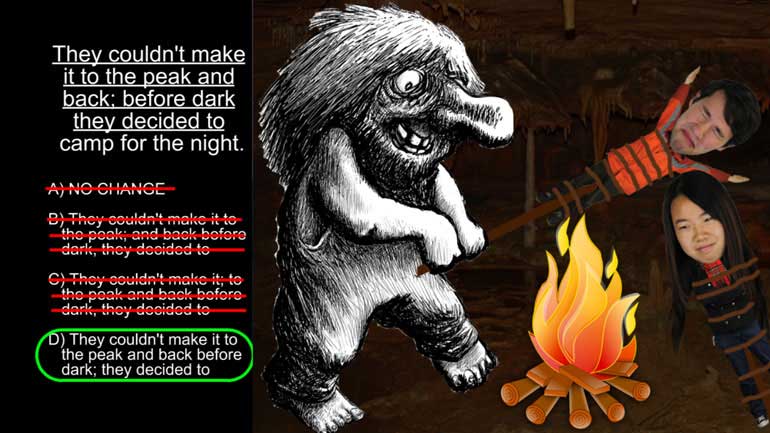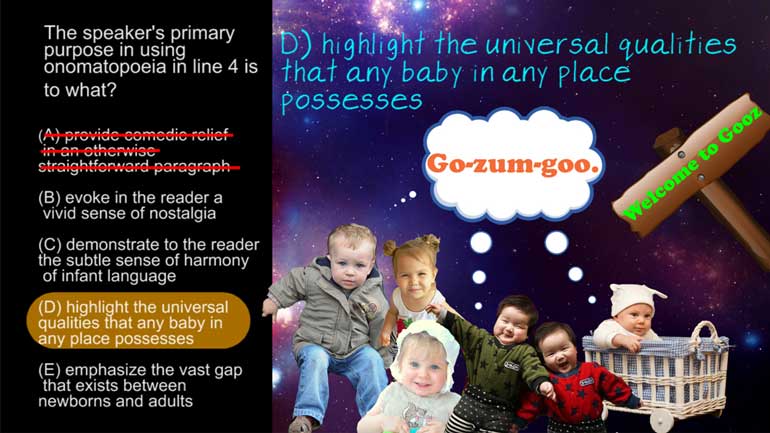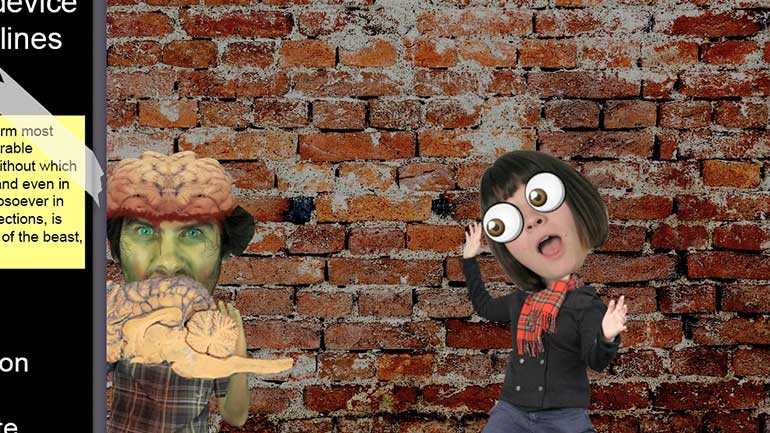ShmoopTube
Where Monty Python meets your 10th grade teacher.
Search Thousands of Shmoop Videos
English II Videos 95 videos
AP English Literature and Composition 1.10 Passage Drill 2. All of the following literary devices are used in this passage except what?
ACT Reading 1.7 Social Science Passage. Based on its context in the passage which of the following is the best synonym for the word enigmatical?
ACT Reading 2.4 Humanities Passage. Which of the following is the best definition for the word "pedantic"?
AP English Literature and Composition 1.8 Passage Drill 2 234 Views
Share It!
Description:
AP English Literature and Composition 1.8 Passage Drill 2. What is the principle effect of the author's allusions in lines 10-11?
- Product Type / AP English Literature
- English / Audience and Purpose
- Reading Literature / Analyze how an author draws on and transforms source material
- Reading Literature / Analyze how an author draws on and transforms source material
- Imagery and Figurative Language / Interpreting meanings and effects of figurative language and imagery
- Diction and Syntax / Interpreting significance or effect of word choices
Transcript
- 00:04
Here's your shmoop du jour... This passage is crying out to be reviewed
- 00:07
again. Hit pause, and see if you can get it to shut up...
- 00:31
What is the principle effect of the author's allusions in lines 7--8?
- 00:36
And here are the potential answers... Well, first of all, we're pretty sure the
- 00:40
author isn't making bunny rabbits appear out of his top hat...
Full Transcript
- 00:44
...so we're talking about allusions here -- the literary kind... and not illusions, the David
- 00:49
Copperfield kind. Let's take a look at lines 7 through 8:
- 00:57
"...such as is found to have been falsely and feignedly in some of the heathen; as Epimenides
- 01:06
the Candian, Numa the Roman, Empedocles the Sicilian, and Apollonius
- 01:13
of Tyana..." So... what's Bacon's reason for rattling off
- 01:18
all these names?
- 01:20
Does he know these people personally? Is he just name-dropping?
- 01:28
The first part -- "falsely and feignedly" indicates that the author feels the people
- 01:32
whose names follow claimed to need solitude...
- 01:36
...but really, they were big softies who, deep down, needed friendship just like the
- 01:40
rest of us. Okay, now which of our answer choices fits
- 01:43
with that idea?
- 01:44
Well, he's definitely not saying these thinkers felt the same way he did, so A is out...
- 01:49
...he's not refuting the idea that holy men are the only ones who need solitude, he's
- 01:54
reinforcing it, so it can't be C...
- 01:57
...Option D is also pretty much the opposite of what we're looking for...
- 02:00
...and E won't work because Bacon never claims that nobody needs solitude... don't forget
- 02:05
those holy men. So B is our answer -- "To show that even respected
- 02:09
ancient thinkers were false in their claims of the need for solitude."
- 02:12
Now... be a friend. Numa the Roman could use a hug.
Related Videos
AP English Literature and Composition 1.2 Passage Drill 4. As which of the following is the object being personified?
AP English Literature and Composition 1.4 Passage Drill 3. How is Burne's view of pacifism best characterized in lines 57 through 67?
AP English Literature and Composition 1.6 Passage Drill 5. Death is primarily characterized as what?
AP English Literature and Composition 1.7 Passage Drill 5. Which line indicates the turn or shift in this poem?
AP English Literature and Composition 1.9 Passage Drill 4. Lines 32-34 are best understood to mean what?
